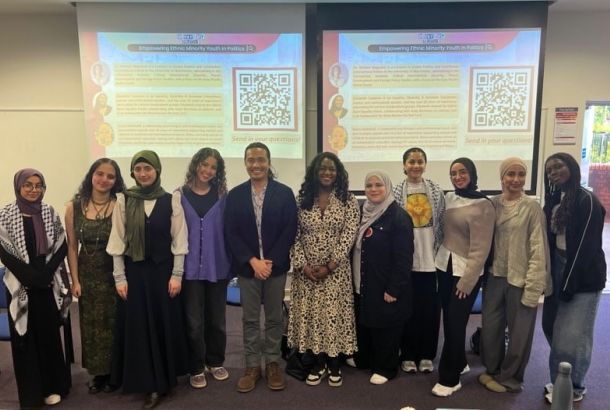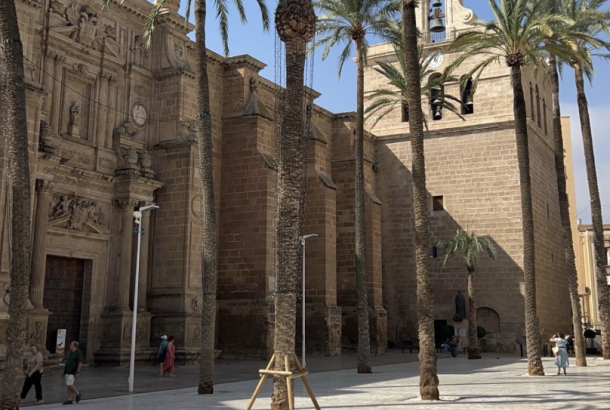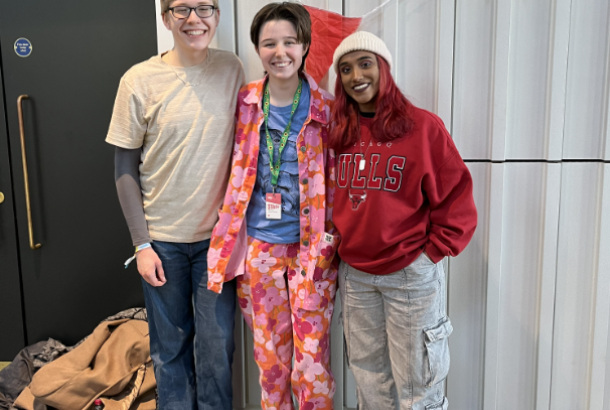Inside Manchester’s Diplomatic Community: Interviews with Sarah Mangan and Kazi Ziaul Hasan

Words by James Reeves and Priyanka Menon
Braving the rain, we visited the Bangladeshi Assistant High Commission back in February. The large compound, east of Manchester’s city centre in Droylsden, felt out of place next to rows of terraced houses. Hanging on the walls of Kazi Ziaul Hasan’s grand office is a portrait of Sheikh Hasina, Bangladesh’s current Prime Minister, and her father, Sheikh Mujibur Rahman, the country’s independence leader.
Manchester has had a long diplomatic presence dating back to the 1820s. While wars, crises, and austerity have led to the closure of consulates over the years, growing international interest in the North West and challenges posed by Brexit has led to a revival of Manchester’s diplomatic community in recent years.
There are now 28 countries represented in Manchester, some by professional diplomats posted from their governments and some by local Mancunians holding honorary positions. Their mission is to provide consular services to the North West and beyond, such as issuing passports and visas and maintaining close trade and cultural links.
In an interview with the Mancunion, the Assistant High Commissioner of Bangladesh, Kazi Ziaul Hasan, as well as Sarah Mangan, a senior Irish diplomat, spoke of the growing international interest in Manchester and the wider region.
Wearing a formal grey suit with a fun-patterned tie, Hasan immediately strikes as a serious, hardworking man – he apologised, forewarning us that he’d have to check his phone to attend to other matters.
Our trip to the Irish Consulate a week later was a simpler affair: after a quick bus ride to the city centre, we waited in a fashionable lobby that doubled as a co-working space. We were escorted to a small 14th-floor office with stunning panoramic views of Manchester’s skyline. Mangan, Ireland’s first Consul General to the North of England, explained that it was a temporary office space. You could immediately sense her passion for her work from the energy and enthusiasm in her voice.
Both Hasan and Mangan come from families of public service, sharing that their fathers had encouraged them to apply for their country’s civil service exam shortly after graduating. While Hasan had pursued Business and Political Science at university, Mangan had worked as an English teacher in Spain for a year before becoming a civil servant.
Our conversations first turned to the crux of their work: providing consular services and promoting cultural, trade, and political links between their countries and the North West. “Our primary responsibility is to provide consular services,” Hasan explained, which included attending to emergencies, and issuing passports or visas. His jurisdiction covered the entire North West of England, as well as North Wales and all of Scotland – this was instrumental in their decision to be based outside of central Manchester. “The major drawback in the city centre is parking… so we thought that getting ample space for parking would be good,” he clarified, laughing as we asked.
In addition to consular services and promoting trade and commerce, Hasan highlighted that much of his work involves increasing the “people-to-people contact between British and the Bangladeshi peoples”, as well as reaching out to British Bangladeshis. “They are an asset for us”, he explained. “They’re highly educated, very established, and they have strong economic and political connections,” making the Bangladeshi diaspora in the UK a key to building links between the two countries, as well as a potential means of enhancing economic growth for Bangladesh.
On the other hand, while the UK-Ireland Common Travel Area allows for ID-free travel, reducing Irish demand for consular services, Brexit means that Ireland is “no longer able to rely on the UK in terms of [an] EU connection,” Mangan shared. “Pre-Brexit, there were three career consulates from the European Union in Manchester, and then post-Brexit we are now at nine,” she highlighted. Mangan pointed out that these EU countries want to be able to provide their citizens with documentation to help them with immigration issues they may face post-Brexit without forcing them to travel to London.
Mangan’s work focuses on promoting UK-Irish links over a smaller jurisdiction covering the North West, Yorkshire and the Humber. The proximity of Manchester to Ireland creates unique opportunities for Mangan’s work. “In terms of reporting that we might do back to Ireland, it’s at a different level,” Mangan explained, adding that she oversees a greater number of official visits both to and from Ireland.
Back in 2022, Andy Burnham and Steve Rotheram, the mayors of the Greater Manchester and Liverpool City Region, made a joint trip to Ireland to meet with then Deputy Prime Minister Leo Varadkar. Mangan shared that one of the main motivators for opening the Consulate in Manchester was to have “direct contact” with these mayors as devolution created “growing centres of power in the north of England.”
Mangan was also keen to highlight the significance of St Patrick’s Day to Irish diplomacy. With events across the world celebrating Irish culture and the Irish diaspora, the Irish government makes full use of this day, arranging ministerial visits and cultural events globally. This year, the Irish education minister toured the UK including Manchester in the week leading up to St Patrick’s Day, while the Taoiseach (Prime Minister) visited the US. Other recent events in Manchester sponsored by the Irish Consulate included an exhibition at the Central Library celebrating Ireland’s LGBTQ+ diaspora, including the history of members of the community in Manchester, such as Eva Gore-Booth – a notable workers’ and women’s rights campaigner based in Manchester in the late 19th and early 20th century.
Turning the conversation to students, both Mangan and Hasan spoke of the significant Irish and Bangladeshi student populations in the UK. “It’s early days for us,” Mangan admitted when we asked her about the work she had done with Irish students. While she had met with the University of Liverpool’s Irish Society, she spoke of building greater connections to the Irish student population, particularly in Manchester. “We’re open to anything that people might be interested in,” she added.
Meanwhile, the Bangladeshi Assistant High Commission is far more involved with student life. “I periodically visit the different universities,” Hasan explained, either to interact with students or to meet with deans, vice-chancellors, or heads of departments. While recipients of government scholarships need to report to the mission on a regular basis, Hasan also spoke of establishing a scheme to provide temporary accommodation to students with members of the local Bangladeshi community as they settle into Manchester. “My greater aim is to encourage and help these students of Bangladeshi origin establish a Bangladeshi Students Association in Greater Manchester,” he said, adding he was inspired by the “vibrant” and “welfare-orientated” Chinese version of the society. Such an association, which he hoped would eventually encompass the entire North and Scotland, could provide useful networking opportunities in business and politics.
When asked about new visa regulations preventing international students from bringing family members to the UK, Hasan was reluctant to comment, saying that visa policy is for each country to decide on its own. “I can share that the general trend is that students have now started looking for different alternatives,” he added, noting the difficulties and strain of being separated from their families for three or four years.
On the flip side, Mangan suggested that these regulations would likely attract more international students to Ireland: in the 2022/23 academic year there were 35,140 international students in Ireland, up from 31,720 in 2021/22. However, she did point out that Ireland only has nine universities, significantly fewer than the UK (Manchester alone has five) and that other pressures such as housing would make it hard for them to grow their international student population.
When asked about the recent Sunday Times article painting foundation years as a backdoor for international students to pay their way to Russell Group universities, all Hasan said was that international students “should also be treated fairly. Of course, the precondition is that they have to meet all the criteria for admission.”
As we rounded up our conversations with Mangan and Hasan, we asked for advice for students interested in careers in the realm of diplomacy. Both, in a quintessentially diplomatic fashion, recommend studying hard and preparing for civil service entrance exams.
“A lot of what you do is talking to people and listening to their stories and then trying to find points of commonality,” Mangan shared about the job scope. She also emphasised the usefulness of a foreign language, as well as staying informed on international affairs.
“It gives you a rare opportunity to meet people, the finest people of the world,” Hasan said. “I mean, this service gives a rare opportunity to make friends and to contribute positively towards global peace.







